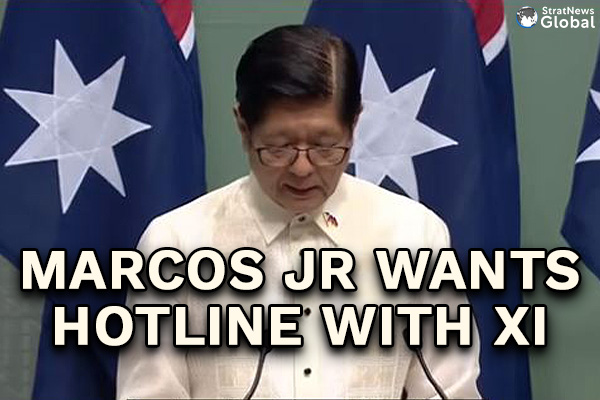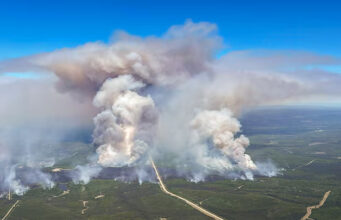Warning that the risk of an armed conflict with China in the disputed South China Sea “is much higher now than it was before,” Philippines President Ferdinand Marcos Jr has urged Chinese President Xi Jinping to expedite the setting up of a hotline between the two countries to check rising tensions.
Speaking on the sidelines of the three-day ASEAN-Australia special summit in Melbourne that ended March 6, Marcos said that “we worry in the Philippines because it could come from, not a strategic decision by anyone saying, ‘OK, we’re going to war,’ but just by some servicemen making a mistake, or some action that’s misunderstood. That’s why the ongoing attempt is always to try and lower the temperature down [when] the rhetoric is up.”
A direct line with Xi would help resolve the maritime dispute which has led to regular confrontations between the coast guards of the two nations, with Chinese ships firing water cannons and even ramming the smaller vessels of the Philippines Coast Guard, he said. On Tuesday, China’s coastguard vessels caused two collisions and used water cannons on Philippines Coast Guard boats on a resupply mission near the disputed Second Thomas Shoal.
President Marcos said he had proposed “a kind of hotline between us, so that if there is a message that needs to be sent from one president to another, we can be assured that that message will reach them”. But the plan is yet to materialise.
Earlier, in an February 29 address to the Australian Parliament, Marcos said that the Philippines is on the “frontline against actions [by China] that undermine regional peace, erode regional stability, and threaten regional success.” Vowing that “I will not allow any attempt by any foreign power to take even one square inch of our sovereign territory,” he said: “the challenges that we face may be formidable, but equally formidable is our resolve. We will not yield.”
“Just as we fought to build our rules-based international order, so are we now fighting to protect it,” he said. “The protection of the South China Sea is a vital, critical global artery. It’s crucial to the preservation of regional peace and, I dare say, of global peace. We have an abiding interest in keeping our cities free and open, and in ensuring unimpeded passage and freedom of navigation. We must uphold, preserve, and defend the unified and universal character of the United Nations Convention of the Law of the Sea, as the constitution of the oceans.
“We draw strength from the consistent and unequivocal support of Australia, and the international community, for the lawful exercise of our rights, which have been settled under international law. And so, on behalf of the Filipino people, I thank you, Australia, for standing with the Republic of the Philippines,” he concluded.
Also See:
https://stratnewsglobal.com/world-news/philippines-
https://stratnewsglobal.com/world-news/philippines-sharp-retort-to-china-on-joint-patrol-with-us-nuclear-capable-bomber/president-worried-about-chinas-cyberattacks-warships-in-south-china-sea/

















